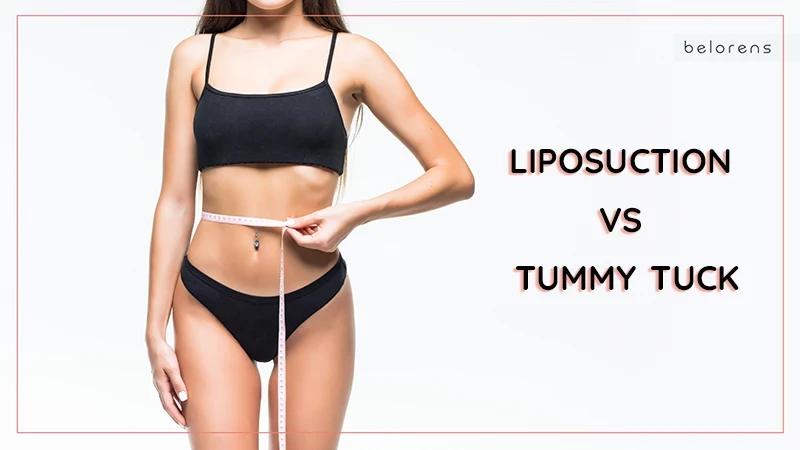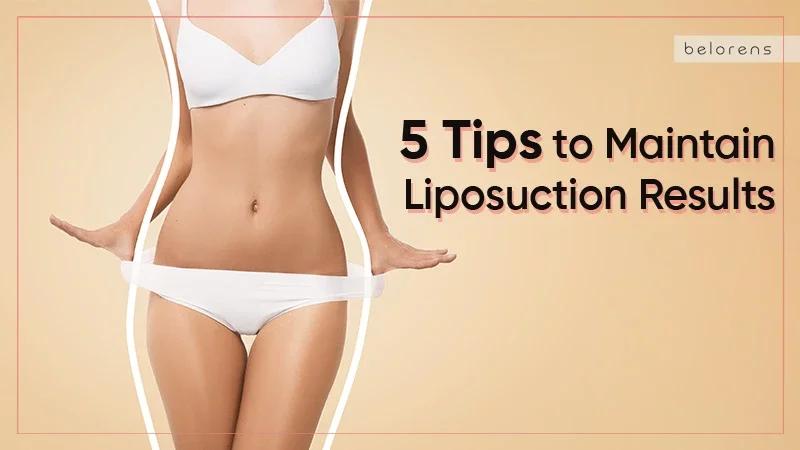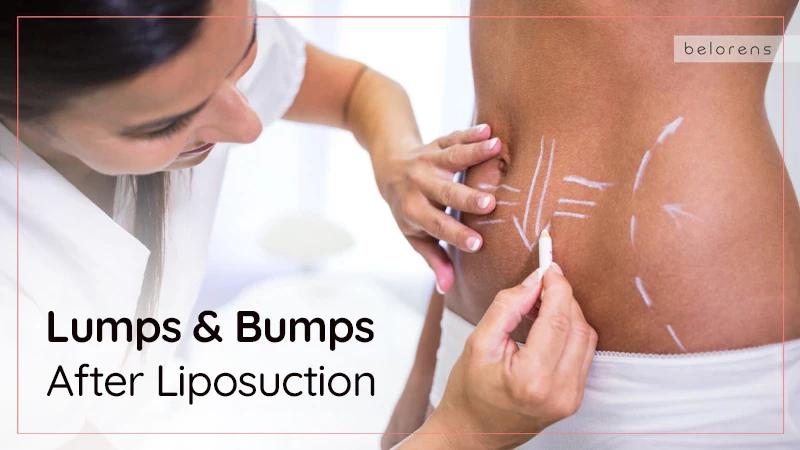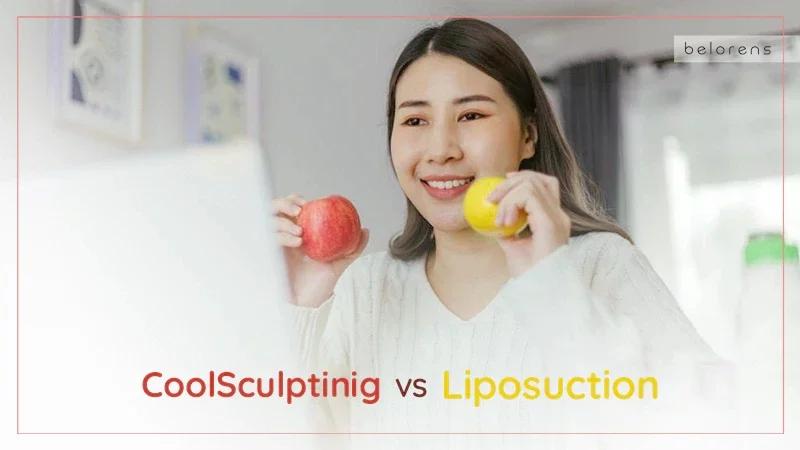Liposuction Diet | A Complete Guide to Pre and Post Liposuction Nutrition Tips
- ByMedical Content Team
- Medically Reviewed byDr. Sabine Kulhanek
Fact checked

Table of contents
Planning to undergo liposuction for a better body shape? The right diet is essential to prepare your body for the procedure and aid in a smooth recovery. In this article, we'll guide you with simple yet effective diet recommendations before and after liposuction. By following these tips, you can optimize your results and take care of your body every step of the way.
Before liposuction, it's important to fuel your body with the right nutrients. We'll provide you with easy-to-follow nutrition advice that will help you prepare for the procedure and support your overall health. Additionally, we'll share valuable tips for your post-surgery diet to promote healing and maintain your results.
With our helpful suggestions, you'll have the knowledge to make informed choices and ensure a successful liposuction journey. Let's explore the best diet practices for your pre and post-surgery phases, so you can achieve your desired body contour and embrace a healthier lifestyle.
Pre-Liposuction Diet Recommendations
Avoid Excessive Sodium Intake Before Liposuction

Discover smart dietary choices for reducing sodium intake before liposuction to ensure a smoother, healthier journey towards your goals:
1-Deli Meats and Cold Cuts: Deli ham, turkey, salami, and other processed meats are often high in sodium. Choose low-sodium or fresh, sliced meats instead.
2-Canned Soups and Broths: Many canned soups and broths contain a significant amount of sodium for flavoring and preservation. Look for reduced-sodium or homemade options.
3-Condiments and Sauces: Condiments like ketchup, soy sauce, barbecue sauce, and salad dressings can be loaded with sodium. Opt for low-sodium versions or make your own.
4-Packaged Snacks: Chips, pretzels, crackers, and other packaged snacks often have high sodium content. Check labels and choose low-sodium alternatives or healthier snack options.
5-Processed Cheese and Cheese Products: Processed cheese slices, cheese spreads, and cheese sauces can be high in sodium. Choose natural, low-sodium cheeses or enjoy in moderation.
6-Pickles and Olives: Pickles and olives are often brined in a salty solution, leading to high sodium levels. Look for low-sodium or fresh options.
7-Fast Food and Takeout: Fast food meals and takeout dishes can be notoriously high in sodium due to added seasonings, sauces, and processed ingredients. Cook homemade meals using fresh ingredients whenever possible.
8-Frozen Meals and Convenience Foods: Frozen dinners, microwaveable meals, and other convenience foods tend to have high sodium content for taste and preservation. Read labels and choose lower-sodium options or prepare homemade meals.
9-Bread and Baked Goods: Bread, rolls, bagels, and certain baked goods may contain more sodium than expected. Check labels and opt for low-sodium varieties or bake your own.
10-Restaurant and Prepared Salads: Pre-made salads from restaurants or delis can have hidden sodium in dressings, toppings, and cured meats. Make your own salads
using fresh ingredients and homemade dressings.
Remember to check nutrition labels, compare brands, and choose low-sodium alternatives to manage your sodium intake effectively.
Avoid Alcohol Consumption
Remember, your commitment to a alcohol-free lifestyle before liposuction can contribute to a smoother recovery and help you achieve the desired results. Prioritize your overall well-being and adhere to your surgeon's recommendations for the best outcome.
Alcohol can lead to:
- Impaired Healing Process
- Increased Bleeding Risks
- Anesthesia Interactions
- Dehydration Concerns
- Compromised Immune System
Abstaining from alcohol before liposuction can positively impact your surgical experience and promote a smoother recovery. By avoiding alcohol, you minimize the risk of impaired healing, excessive bleeding, anesthesia complications, dehydration, and a compromised immune system. Prioritize your overall well-being and follow your surgeon's recommendations for optimal results.
Read More: Everything You Need to Know About Fasting Before Surgury
Post-Liposuction Diet Recommendations
Follow Your Surgeon's Instructions
Always adhere to the dietary guidelines provided by your surgeon. They will have specific recommendations based on your individual circumstances and the extent of your liposuction procedure.
Consult with liposuction doctors
Use Optimal Eating Strategy After Liposuction
To prevent overeating, focus on consuming smaller portion sizes after liposuction. Here's why smaller portion meals can be helpful:
Reduced Stress on the Body
After liposuction, your body needs time to heal and recover. Consuming smaller portion meals can help reduce the burden on your digestive system, allowing it to focus on the healing process rather than processing large quantities of food at once.
Prevent Overeating
Smaller portion meals can help prevent overeating, which can lead to discomfort, bloating, and weight gain. By practicing portion control, you can maintain a healthy calorie balance and support your body's recovery without putting undue stress on the surgical area.
Optimal Nutrient Absorption
By dividing your meals into smaller portions, you provide your body with a steady supply of nutrients throughout the day. This promotes better absorption and utilization of essential vitamins, minerals, and other nutrients, supporting the healing process and overall health.
Sustained Energy Levels
Consuming smaller, balanced meals at regular intervals can help maintain stable energy levels throughout the day. This can be especially beneficial during the recovery period when your body may require extra energy for healing and regeneration.
Improved Digestion
Eating smaller portion meals allows for better digestion and absorption of nutrients. It can help prevent digestive discomfort, such as bloating and indigestion, which may be common after surgery.
Remember to consult with your surgeon or a registered dietitian for personalized advice on portion sizes and meal planning after liposuction. They can provide specific recommendations based on your body's needs, the extent of the procedure, and any other individual factors.
Stay Hydrated
Staying properly hydrated is essential before and after surgery to support your body's optimal functioning and promote a successful recovery after liposuction surgery. Here's some additional information about the importance of hydration:

Tissue Healing
Water is vital for cellular function and tissue repair. Proper hydration helps transport nutrients and oxygen to the surgical site, aiding in the healing process of your liposuction surgery. It also supports the removal of waste products from the body, promoting a clean and healthy environment for healing.
Circulation and Blood Flow
Adequate hydration maintains optimal blood volume and circulation, ensuring that essential nutrients and oxygen reach the surgical site efficiently. Proper blood flow helps carry away toxins and waste products, reducing the risk of complications and promoting healing.
Reducing the Risk of Infection
Hydration plays a crucial role in supporting the immune system. Drinking enough water helps keep mucous membranes moist, which serves as a barrier against potential pathogens. It also supports the production of antibodies and white blood cells that are crucial in fighting off infections.
Bowel Function
Surgery and certain medications can sometimes disrupt normal bowel function. Staying hydrated helps prevent constipation and keeps the digestive system functioning properly. This is particularly important if you are taking pain medications, as they can cause constipation as a side effect.
Managing Swelling
Proper hydration can help minimize swelling after surgery. When the body is dehydrated, it tends to retain more water, leading to increased swelling and discomfort. By maintaining optimal hydration levels, you can help reduce post-operative swelling and promote a more comfortable recovery.
Avoid Smoking
Smoking hinders the healing process and can increase the risk of complications after liposuction. Nicotine constricts blood vessels, reducing blood flow to the surgical site, which can impede healing and increase the risk of infection. It is strongly advised to abstain from smoking for a significant period before and after the surgery to promote optimal recovery.

No Anticoagulant Medications
It is important to follow your surgeon's instructions regarding any anticoagulant medications. These medications can interfere with the body's clotting ability and increase the risk of bleeding. Your surgeon may advise you to discontinue the use of blood-thinning medications such as aspirin, ibuprofen, or certain herbal supplements for a specified period before and after the procedure. Always consult with your surgeon before stopping or resuming any medication.
Exercise Recommendations
Engaging in appropriate exercises after liposuction can be beneficial for your overall recovery and help maintain your liposuction results. However, it's important to follow your surgeon's recommendations and guidelines specific to your case. Here are some generally recommended exercises after liposuction:
Walking
Walking is a low-impact exercise that promotes blood circulation, helps prevent blood clots, and aids in the healing process. Start with short, gentle walks and gradually increase the duration and intensity as advised by your surgeon.
Light Cardiovascular Exercises
Depending on your recovery progress, your surgeon may recommend incorporating light cardiovascular exercises such as stationary cycling, elliptical training, or swimming. These exercises can help increase your heart rate, improve cardiovascular fitness, and promote overall body toning.
Stretching and Flexibility Exercises
Gentle stretching exercises can help maintain flexibility, prevent muscle stiffness, and enhance overall mobility. Focus on stretching major muscle groups and joints, but avoid any movements that strain the surgical area.
Low-Impact Strength Training
Incorporating light strength training exercises can help maintain muscle tone and promote a balanced physique. Focus on using lighter weights or resistance bands and perform exercises that target various muscle groups while avoiding strain on the surgical area.
Core Strengthening Exercises
Strengthening your core muscles can improve posture, stability, and overall body strength. Opt for exercises such as modified planks, gentle abdominal exercises, and pelvic floor exercises (if approved by your surgeon).
Remember to always consult with your surgeon before starting any exercise routine after liposuction. They will provide personalized recommendations based on your specific condition, extent of the procedure, and recovery progress. Start slowly, listen to your body, and gradually increase the intensity and duration of your exercises as advised by your healthcare professional.
Foods to Avoid after Liposuction
After liposuction, it is generally recommended to avoid certain foods that may hinder the healing process and increase the risk of complications. Here are some foods to avoid or limit:
- Foods high in saturated and trans fats
- Sodium and sugar-rich foods
- Processed meats (bacon, sausages, deli meats)
- Sodas and carbonated beverages
- Fried and fast foods
- Refined grains (white pasta, white rice)
- Raw dairy products
- Caffeinated and alcoholic beverages
- Salad dressings high in unhealthy fats and additives
- Allergenic foods (if you have known allergies or sensitivities)
- Red meat (choose lean protein sources instead)
- Spicy foods (which may cause discomfort during the healing process)
By avoiding these foods, you can support your recovery and promote a healthier healing process. Consult with your surgeon or a registered dietitian for personalized dietary recommendations based on your specific needs.
Common Nutritional Questions About Liposuction Surgery
Q1: Should you diet before liposuction?
A: It is recommended to maintain a balanced and nutritious diet before liposuction. While there is no specific pre-surgery diet plan, focusing on a healthy eating pattern with a variety of fruits, vegetables, lean proteins, whole grains, and healthy fats can support your overall health and prepare your body for the procedure.
Q2: What nutrition should I have before liposuction?
A: Before liposuction, prioritize a well-rounded diet with essential nutrients. Adequate protein is important for tissue repair and healing, so include lean meats, fish, poultry, tofu, legumes, and dairy products. Stay hydrated by drinking plenty of water and limit sodium intake to reduce the risk of water retention and swelling.
Q3: What diet should I follow immediately after liposuction?
A: While specific dietary recommendations may vary, a balanced diet is generally advised after liposuction. Include lean proteins, fiber-rich foods (such as whole grains, fruits, vegetables, and legumes), anti-inflammatory foods (such as berries, leafy greens, fatty fish, turmeric, ginger, and olive oil), and plenty of water. Always follow your surgeon's instructions for any dietary restrictions or modifications.
Q4: What foods should you avoid before liposuction?
A: To prepare for liposuction, it is advisable to avoid or limit certain foods that may interfere with the procedure or hinder recovery. These include high-sodium foods (such as processed foods and excessive salt), sugary snacks and beverages, alcohol, fatty and fried foods, carbonated and caffeinated beverages, and spicy foods. It is also important to avoid smoking and discontinue the use of anticoagulant medications, if advised by your surgeon.
Q5: Are there any specific foods I should avoid after liposuction?
A: While there are no specific foods you need to completely avoid, it is recommended to limit your consumption of processed foods, excessive sodium, sugary snacks, and alcoholic beverages. These choices can contribute to swelling, water retention, and hinder the healing process. Focus on nourishing your body with whole, nutrient-dense foods.
Q6: Can I resume exercise immediately after liposuction?
A: It is important to follow your surgeon's guidelines regarding exercise after liposuction. In the initial stages of recovery, light walking is usually encouraged to promote blood circulation and aid in healing. However, more intense exercise and strenuous activities should be avoided until your surgeon gives you the green light. Gradually ease back into your exercise routine as recommended by your surgeon.
Q7: How can I maintain the results of liposuction in the long term?
A: To maintain the results achieved through liposuction, it is important to adopt a healthy and balanced lifestyle. This includes following a nutritious diet, engaging in regular physical activity, avoiding significant weight gain, and practicing self-care. Remember that liposuction is not a substitute for overall healthy habits, and your long-term success depends on maintaining a healthy lifestyle.
Q8: Can I take supplements or vitamins after liposuction?
A: It is best to consult with your surgeon regarding the use of supplements or vitamins after liposuction. Your surgeon can provide guidance on any specific supplements that may be beneficial for your recovery or overall health. Avoid self-medicating with supplements without consulting your healthcare professional first.
If you still have questions, join the liposuction discussion now!
Summery
In conclusion, a proper diet is crucial for preparing for and recovering from liposuction surgery. By following the pre and post-surgery nutrition tips provided, you can optimize results, promote healing, and embrace a healthier lifestyle.
Before liposuction, reduce sodium intake and avoid alcohol to minimize complications and support healing. After surgery, adhere to portion control, stay hydrated, avoid smoking and certain medications, and follow recommended exercises.
Make informed dietary choices, limit unhealthy foods, and consult professionals for personalized advice. By maintaining a balanced diet and a healthy lifestyle, you can maximize the benefits of liposuction and achieve long-lasting results.



